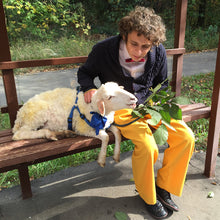
In this series of lessons, you will learn how improvisation really works and where it comes from. You will find out what is important to pay attention to, and what you don't need to waste your time on.
How do you learn to improvise?
How do you quickly, elegantly respond to unexpected situations and challenges?
How do you get away with it?
How do you get profit from any circumstance?
How do you make a solution out of a problem?
Improvisation (unexpected, sudden).
Have you heard the saying that the best improvisation is premeditated and rehearsed?
Let's think about the many examples of improvisation by musicians. Especially jazz musicians. Imagine if a pianist could not play the piano. First, he would not be a musician, and second, he would not be able to improvise.
First, he needs to become a musician. Then, he needs to learn to play well. Only after that will he be able to improvise.
We use these same rules in any business or practice.
Let's say we have learned our business well. The next step is to learn how to be spontaneous, unexpected, sudden, or, in other words, how to improvise.
Professional clowns know the secrets of the art of improvisation better than anyone else. Especially street clowns.
The street clown must react to whatever happens with pedestrians, cars, animals, or objects, such as a wind-blown package.
A clown should be a good improviser. But this is not all.
The clown should organize the space, so that from a small part of the street or square, from the gray, boring asphalt, a stage appears. Ordinary pedestrians and onlookers would turn into his audience. He would become an artist for them.
The earnings of a street artist depend on this. That is, in other words, the street clown is not only a clown, but also the seller of his jokes and ideas. The street clown is not only for the audience who come to see him perform, but also for ordinary passersby.
At every performance, clowns come face to face with improvisation.
The success of a clown depends on the ability to improvise.
The real clown is always improvising, no matter what happens.
How will the online Course go?
1. The Course is designed for 3 months with 12 Lessons.
2. The Course Meeting is every week - one lesson for 90 minutes
3. Online Learning will be on the Zoom system (with sessions recorded so that you can review).
Mikhail will email you the First Lesson instructions.
or
Join Mikhail's WAIT LIST
If you are on the WAIT LIST, Mikhail will email you about openings.
If you have questions, please contact Mikhail immediately, as the number of Students in classes is limited.













